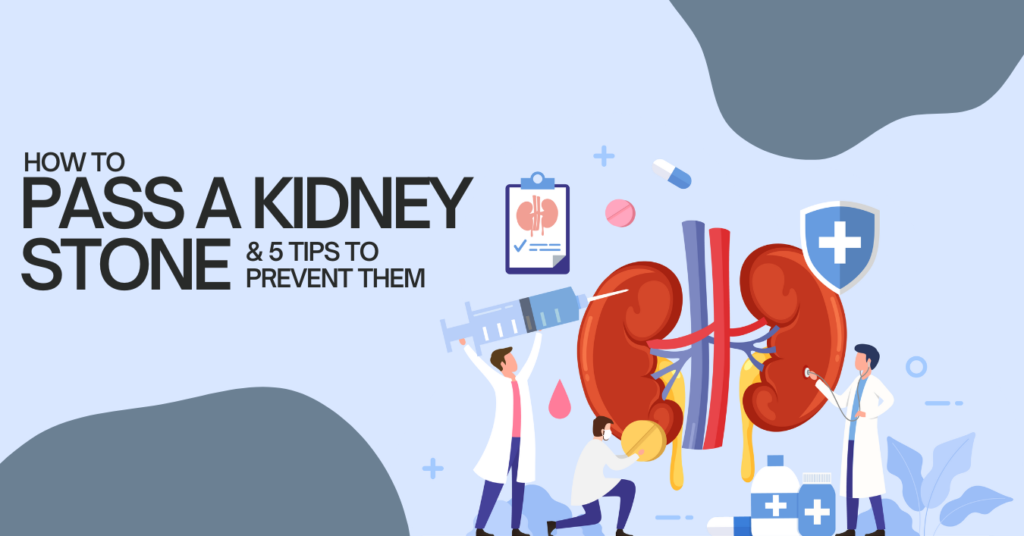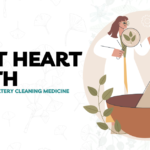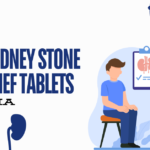
Dealing with Kidney Stones: Passing the Pain and Preventing Future Ouchies
Kidney stones – tiny, mineralized clumps that form in your kidneys – can be incredibly painful. If you’ve ever had one, you know exactly what I’m talking about. The good news? You’re not alone! Millions of people deal with kidney stones every year. The even better news? There are ways to cope with the pain while passing a stone and strategies to prevent them from forming again.
This blog will be your guide through the rocky road (pun intended) of kidney stones. We’ll cover:
- Understanding Kidney Stones: What are they and how do they form?
- Passing the Pain: Tips to manage discomfort while your body gets rid of the stone.
- Seeking Medical Help: When to know a doctor’s intervention is necessary.
- Preventing Future Stones: 5 key strategies to keep those nasty pebbles at bay.
What are Kidney Stones and How Do They Form?
Imagine your kidneys as natural filters, constantly cleaning your blood. They remove waste products and excess minerals, sending the waste out in your urine. Sometimes, these minerals can clump together, forming hard crystals that grow into stones. These stones can range in size from a grain of sand to a pea (ouch!).
There are different types of stones, each with a favorite mineral for building. The most common culprit is calcium, but stones can also be made of uric acid, struvite, and cystine.
So, what causes these little troublemakers?
- Dehydration: Not drinking enough fluids is a major risk factor. When your body is dehydrated, urine becomes more concentrated, making it easier for minerals to clump.
- Diet: A diet high in animal protein, salt, and sugar can contribute to stone formation.
- Certain medical conditions: Some health problems, like recurrent urinary tract infections (UTIs) or inflammatory bowel disease (IBD), can increase your risk.
- Family history: If your close family members have had kidney stones, you’re more likely to experience them too.
Strategies for Relief:
Kidney stones are notorious for causing excruciating pain. It can come in waves, hitting your back, abdomen, or groin. You might also experience:
- Painful urination (burning or stinging)
- Blood in your urine
- Nausea and vomiting
- Frequent urination
- Difficulty passing urine
If you’re experiencing these symptoms, here are some tips to manage the discomfort while your body tries to pass the stone:
- Hydration is Key: Drink plenty of fluids, especially water. Aim for 8-10 glasses a day. This helps flush out the stone.
- Pain Relief Medication: Over-the-counter pain relievers like ibuprofen or acetaminophen can help manage the discomfort.
- Warm Compress: Applying a warm compress to your back or abdomen can ease muscle spasms and provide some relief.
- Warm Bath: Taking a warm bath can be relaxing and help with pain management.
Seeking Medical Help:
While some kidney stones can be passed at home with the strategies mentioned above, there are situations where seeking medical attention is crucial:
- Severe pain that doesn’t improve with medication: If the pain is unbearable and over-the-counter meds aren’t helping, see a doctor.
- Nausea and vomiting that you can’t control: Persistent nausea and vomiting can lead to dehydration, worsening the situation.
- Blood in your urine: While some blood is possible, excessive bleeding warrants a doctor’s visit.
- Fever: A fever can indicate an infection, which requires medical attention.
- Difficulty urinating: If you’re unable to urinate at all, it’s a medical emergency. Seek immediate help.
Preventing Future Stones:
Once you’ve dealt with a kidney stone, the natural question is: “How can I prevent this from happening again?” Here are 5 key strategies to keep those stones at bay:
- Hydrate, Hydrate, Hydrate! We can’t stress this enough. Aim for 8-10 glasses of water daily. Diluting your urine makes it harder for stones to form.
- Diet Matters: Limit animal protein, salt, and sugar intake. Focus on fruits, vegetables, and whole grains. These foods are rich in fiber and citrate, which can help prevent stone formation.
- Watch Your Calcium Intake: While calcium is important for bone health, excessive amounts can contribute to stones. Talk to your doctor about the right amount for you and consider getting calcium from food sources like low-fat dairy products rather than supplements.
- Reduce Sodium Intake: Salty foods can increase your risk of calcium stones. Limit processed foods, restaurant meals (often high in sodium), and added table salt while cooking.
- Certain Fruits and Vegetables in Moderation: While fruits and vegetables are generally great for kidney health, some are high in oxalate, a mineral that can contribute to certain types of stones. If you’re prone to oxalate stones, talk to your doctor about limiting spinach, rhubarb, beets, and some nuts.
Remember: These are general tips, and what works for one person might not work for another. It’s important to talk to your doctor about personalized strategies to prevent kidney stones based on your specific risk factors and medical history.
Additional Bonus Tip: Consider asking your doctor about medications to prevent stones. In some cases, medications that bind to oxalate or increase urine citrate levels might be recommended.
Kidney stones can be a painful experience, but with the right knowledge and strategies, you can manage the discomfort while passing a stone and take steps to prevent future occurrences. Remember, hydration is key, diet plays a big role, and consulting your doctor is crucial for personalized guidance. So, stay hydrated, make smart dietary choices, and keep those little stones at bay
Dealing with kidney stones can feel like a rocky road, but you don’t have to navigate it alone. This guide has equipped you with the knowledge to tackle both the discomfort of passing a stone and the strategies to prevent future ones.
Here’s a quick recap:
- Understanding the Foe: Kidney stones are mineralized clumps formed from concentrated urine. Dehydration, diet, and medical conditions can all contribute to their formation.
- Conquering the Pain: While passing a stone can be excruciating, hydration, pain relievers, warm compresses, and warm baths can offer relief.
- Seeking Medical Help: If severe pain persists, nausea and vomiting become uncontrollable, you experience excessive blood in your urine, develop a fever, or have difficulty urinating, seek immediate medical attention.
- Preventing Future Battles: By staying hydrated, following a balanced diet moderate in animal protein, salt, and sugar, managing calcium intake, reducing sodium intake, and potentially limiting certain fruits and vegetables (if prone to oxalate stones), you can significantly reduce your risk of future stones.
Remember, this knowledge empowers you, but doesn’t replace professional guidance. Consulting your doctor is vital for creating a personalized prevention plan based on your unique risk factors and medical history. They can also discuss medications that bind to oxalate or increase urine citrate levels, offering an additional layer of defense.
Aapka Care in Mumbai shines as a beacon of hope for those seeking exceptional kidney stone removal services. Their team of urology specialists is dedicated to providing comprehensive care, utilizing advanced techniques to ensure a safe and effective stone removal process. With their expertise and your commitment to preventive measures, you can keep kidney stones at bay and live a healthier life.
So, stay informed, stay hydrated, make smart choices, and prioritize your kidney health. With the right knowledge and action, you can conquer kidney stones and live a life free from their painful surprises.



